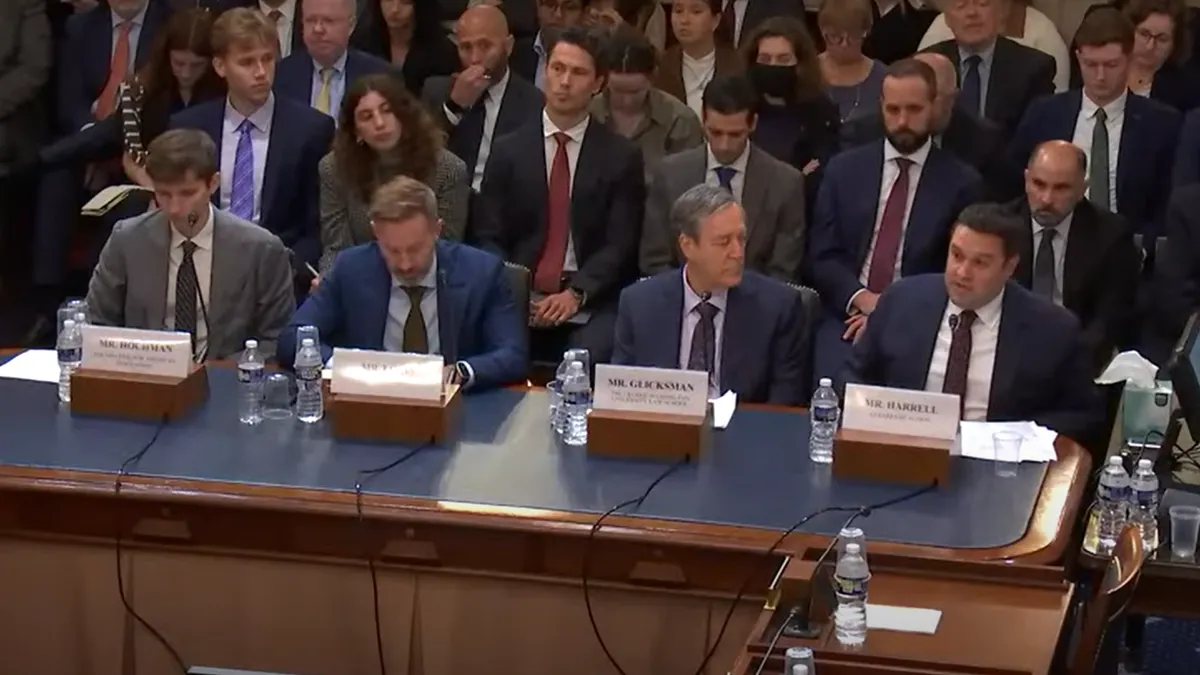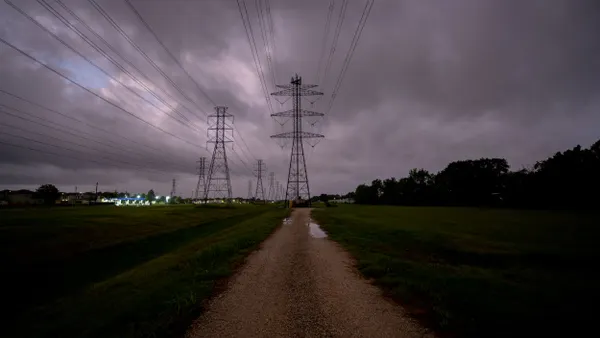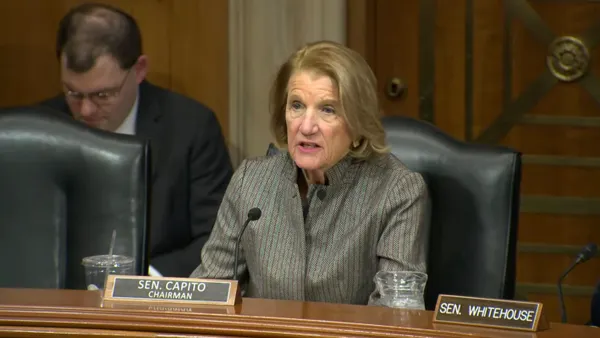Dive Brief:
- A bipartisan House proposal to “modernize” the National Environmental Policy Act has support from electric utilities who say it would help them build generation and transmission capacity they need to maintain the reliability of the nation’s electric grid.
- The Standardizing Permitting and Expediting Economic Development (SPEED) Act would shorten permitting timelines, simplify the analysis NEPA requires, establish judicial review limitations and limit the use of procedural efforts to block projects, according to bill sponsors.
- “The problems with the NEPA process are energy-neutral,” Rep. Jared Golden, D-Maine, said Wednesday at a House Committee on Natural Resources hearing. “They can be detrimental to both fossil fuel and renewable energy projects. … These problems with NEPA can cut both ways, and so, too, should the solutions. This is a pro-energy bill that takes an all-of-the-above, technology-neutral approach.”
Dive Insight:
Permitting reform has drawn bipartisan efforts in recent years, but previous proposals failed to yield results. With the nation’s electric grid facing rapid demand growth, renewed efforts have focused on the need add resources and maintain reliability.
Golden and Rep. Bruce Westerman, R-Ark., chair of the House Committee on Natural Resources, introduced the SPEED Act in July.
“We need robust power production and transmission to achieve energy dominance and lower costs. ... But NEPA has been warped over time to become a law that allows endless lawsuits and bureaucracy,” Golden said.
According to a summary of the legislation Golden provided, the SPEED Act will
- Focus environmental reviews on “direct, significant impacts rather than hypothetical or tenuously connected effects.”
- Create “reasonable timelines” for agency decisionmaking.
- Streamline judicial reviews.
- Clarify when a NEPA review is triggered by refining the definition of major federal action.
The MFA category “has grown so broad that nearly any federal action or funding can trigger a lengthy, complex review,” Golden’s statement said.
At Wednesday’s hearing, ClearPath Action CEO Jeremy Harrell said the broken permitting system is “the single largest barrier to deploying new clean energy in this country,” with solar energy projects facing the highest rate of NEPA litigation of all energy sources. “There’s a major challenge here.”
Electric utilities are supporting the legislation.
“Streamlining outdated permitting processes will help America’s electric companies better serve our customers and help our nation achieve energy dominance,” Edison Electric Institute President and CEO Drew Maloney said in a statement. “We ... urge Congress to advance this common-sense legislation that meaningfully removes roadblocks and supports the infrastructure that powers communities across America.” The group represents investor-owned utilities.
The National Rural Electric Cooperative Association is also backing the SPEED Act. The group said the legislation will streamline NEPA requirements on electric cooperatives applying for federal permits to build new generation, transmission and distribution capacity.
“One of the big changes in the bill is that receiving federal grants or other types of funding would no longer automatically trigger NEPA, meaning co-ops wouldn’t have to go through the review process every time they get federal money for an improvement project,” the group said.
However, Robert Glicksman, a professor of environmental law at the George Washington University Law School, cautioned against passing the SPEED Act now.
“Even if Congress is intent on revising NEPA, this is the wrong time to do it,” he said. Congress made changes to NEPA in the Fiscal Responsibility Act of 2023, and the Supreme Court has recently shifted judicial review toward greater deference to agencies in their NEPA preparations, he noted.
“It would make more sense to step back and evaluate the impacts of these developments, before rewriting the statute again,” Glicksman said.















